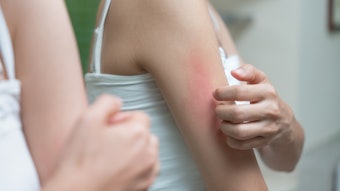Pollution is bad news for the skin regardless of lifestyle choices, according to a study by Olay scientists and Beijing's General Hospital of the Air Force. The two collaborated to study environmental factors and skin in a city well known for its poor air quality.
Many women believe that their lifestyle choices, i.e. healthy eating, regular exercise, consuming the recommended amount of water, etc., will positively impact the fate of their skin health, but the study shows that pollution trumps even the healthiest choices. Wei Liu, MD, head of the dermatology department at the General Hospital of the Air Force, and Olay scientists looked at the relationship between air quality and incidence of dermatological skin conditions among patients in Beijing over a year long period. They revealed a clear correlation between spikes in air pollution and increases in the number of patients suffering from skin problems.
A clinical study was conducted across the least and most polluted districts of Beijing, measuring multiple aspects of skin health and appearance on over 200 women, while recording their lifestyle and skin care routine choices. It found that 88% of the world’s population live in cities with air quality that does not comply with World Health Organization standards.
Also, dehydration is one of the most immediate and significant effects of air pollution on skin a. Dehydration contributes to lines, wrinkles, rough skin, dullness and dryness, Subjects living in highly polluted areas had significantly worse skin hydration and a compromised skin barrier function than those living in cleaner suburbs despite making better lifestyle choices.
Although pollution is detrimental to skin health, women are not aware of the dangers pollution presents. Only 15% of women believe that pollution causes dryness.
The study was conducted in promotion of the beneficial effects of niacinamide, the key ingredient in Olay Total Effects.










